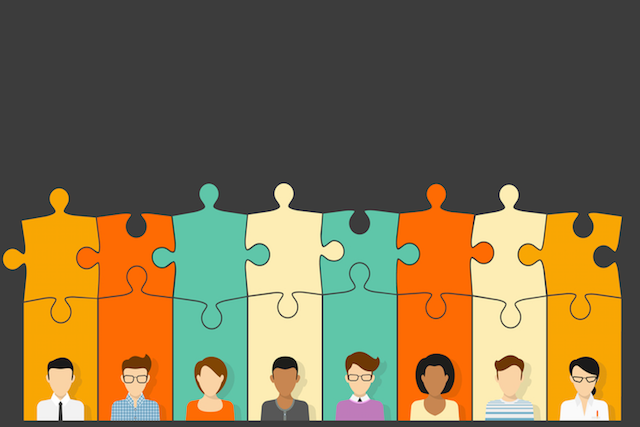
This post was written by HIRC summer intern Savannah Cornejo Garcia. Savannah is in her senior year studying Political Science and Psychology at the University of Illinois at Urbana-Champaign. Currently preparing to attend law school next year, she intends to pursue a joint JD-MSW degree. She hopes that her work as a lawyer will one day allow her to become a judge. She plans to use her bilingual and bicultural background to help those who have been historically underrepresented and marginalized.
Internalized oppression is a concept that I came to understand only in the last few years, but it has had an immense impact on both my own self-concept and my perception of the lasting effects of discrimination. I have always known and embraced my Latina identity, including the Spanish language and immigrant background that came with it; however, it was not until I came to fully comprehend the influence that internalized oppression has had in my life, in my family, and in the way that I see myself, that I truly was able to fully accept my entire identity. Understanding the societal establishments and historical oppression that so deeply ingrained in me the need to conform to an ideal that I am not, lifted a huge burden off me. I decided to write this blog post to hopefully allow others who have felt the heavy weight of internalized oppression to also be relieved.
With the recent resurgence of the Black Lives Matter movement, issues of social justice and systemic racism have moved to the forefront of public discourse. It seems as though, now more than ever, there has been a call for the members of our society to reflect introspectively on their own internal biases and the ways they might contribute to the systemic oppression and marginalization of people of color in the United States. One of the many important conversations to be had about racism and white supremacy is discussing the prevalence of internalized oppression among marginalized groups in our society.
The presence of internalized oppression instills in marginalized groups the belief that having certain traits or being part of a particular group is undesirable. this belief can, in turn, manifest as a negative attitude towards one’s own cultural group. Rooted in our colonial legacy, the internalized goal (whether we are aware of it or not) has become to adopt characteristics and values that align with the most powerful group in society, in order to be accepted and to survive in an adverse environment. Internalized oppression presents in varying attitudes and behaviors across different groups, but below are a few scenarios that exemplify how it may appear:
An African American woman who constantly straightens her hair despite the damage it does to her natural locks.
A Korean man who avoids spending time in the sun as much as possible to ensure that his skin does not become “too dark.”
A woman who tells a survivor of sexual assault that she deserved what happened to her because “she was asking for it” with the short skirt she was wearing.
A Brazilian immigrant who comes to believe their accent is ugly and avoids speaking English in public whenever possible.
Given the issues our society currently faces with discrimination and racism, it is important to acknowledge the role that internalized oppression plays in the cycle of injustice and inequality. Due to the present administration’s anti-immigration policies, immigrants are made even more vulnerable to the effects of internalized oppression. Constantly hearing the leaders of this nation use xenophobic rhetoric has an impact on the way that many immigrant communities view themselves and their background in relation to the United States. It can cause immigrants to internalize the messages that they are criminals, that those who speak with an accent are uneducated, and that the white standard should be held as the ideal for beauty, power, and achievement.
Though it does not impact all people in the immigrant community, the power of internalized oppression is very damaging to those it does effect. Not only can it distort their personal identity, but it can also cause immigrants to reject their own culture or ethnic background. Manifesting as a seemingly counterintuitive “self-hatred,” internalized oppression can cause immigrants to antagonize other immigrants, adopt political opinions that oppose pro-immigrant policies, or even avoid seeking out help with the struggles that come with migrating to the United States– anything to ensure they are not identified as the stereotype of the “helpless” immigrant.
It is extremely important to acknowledge the impacts of internalized oppression on the immigrant community, especially during this time of heightened xenophobia in the U.S. Becoming aware of how internalized oppression influences the perception immigrants have of themselves and how it in turn can manifest as alienation of their own ethnic identity is a vital step towards its rejection. All people play a role in oppression, making it the prerogative of both individuals and the authorities in our society to address the impact it has on their self-concept and behavior.
“Oppression can be overt or covert, subtle or obvious, intentional or unintentional, conscious or unconscious.” – Derald Wing Sue, Professor of Psychology and Education in the Department of Counseling and Clinical Psychology at Teachers College, Columbia University